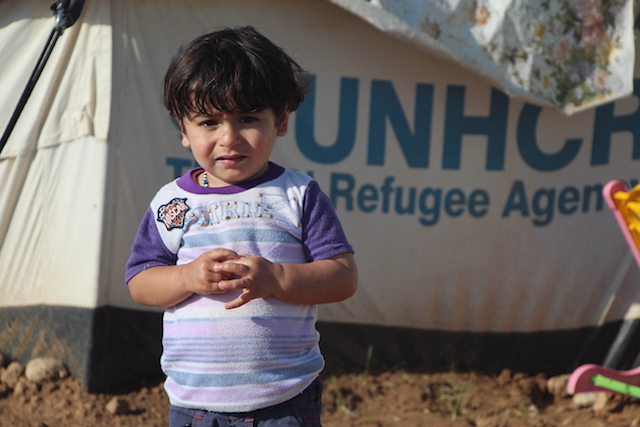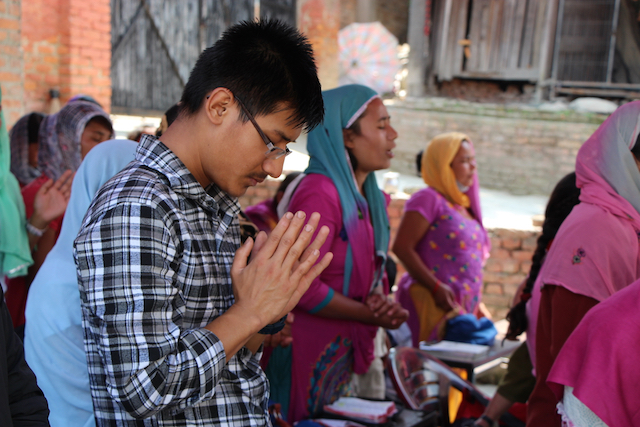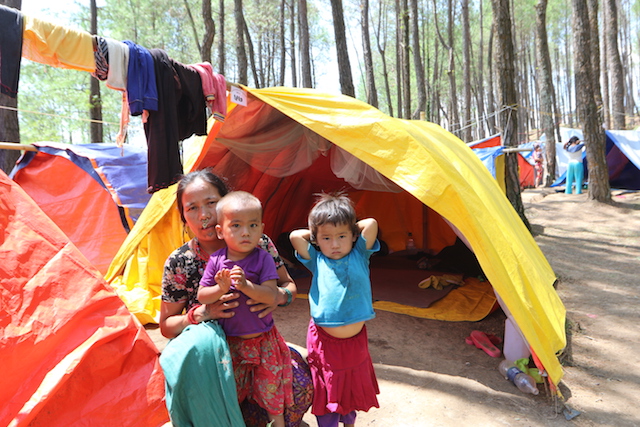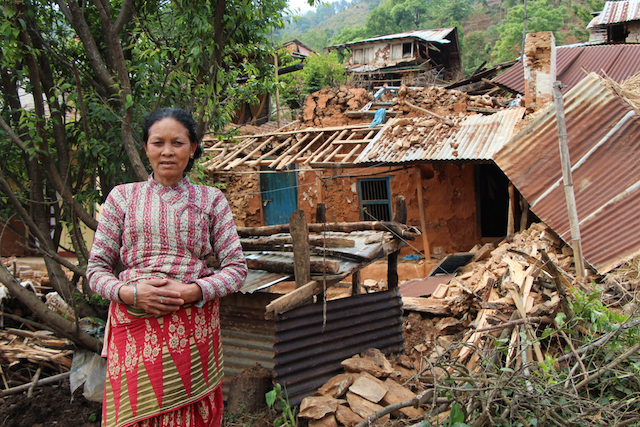No one is prepared when tragedy strikes.
That’s the nature of a disaster—it’s unexpected and devastating. The same is true of political unrest. Although many may see the warning signs, few are usually prepared for the consequences.
At World Help, we’re committed to responding with emergency humanitarian aid when the unexpected happens. We believe this work is necessary and important—and you can make a bigger difference than you think.
Here’s why:
1. Crisis relief saves lives
This point may seem obvious, but it can’t be overstated. Relief provided in the midst of disaster has the power to prevent death. Our first priority following a disaster is always saving as many lives as possible.
Disaster, war, and famine demand immediate physical provisions. Items like food supplements, clean water, shelter from the elements, and basic medicine are enough to sustain lives in emergency situations.
How often—if ever—have you done something that saved someone’s life?

2. Crisis relief opens the door for sharing the Gospel
God uses all circumstances—even tragic, terrible ones—to draw people to Himself.
Our first priority during a crisis is to save as many lives as possible. Then, our next priorities are establishing trust and sharing the Gospel through the process of rebuilding.
The order of these priorities is critical. We never withhold aid from those in need, but we aren’t shy about the reason we send aid in the first place—to reach as many individuals with the Gospel of Christ as possible.
But this can only happen after showing true compassion in action . . . a package of rice and beans for a starving family, medicine for a dying child, clothing for refugees in the dead of winter.
This means your impact not only meets immediate physical needs, but also eternal spiritual needs.
Our partners saw this firsthand in Nepal following the earthquakes last April:
“During the process of relief distribution, we have seen a tremendous spiritual impact. 25 new churches were born, and thousands of believers have come to Christ through the impact of relief supply distribution process. And many of them will be in heaven together with us. Had it not been for relief distribution, they would not be in the Kingdom of God today. So through your physical help, God has used it to impact the spiritual world as well.”

3. Crisis relief shows they aren’t forgotten
When disaster strikes, the world often focuses on sending aid to the biggest cities with the highest concentrations of people. But what about the remote villages, the people on the outskirts, the forgotten?
Following the earthquakes in Nepal last April, the majority of aid distribution centered on Kathmandu. But many of the hardest-hit villages were located in remote mountain communities, and in the months following the earthquakes, these villages remained unreached.
This was where we focused our time and energy.
When you give love in the form of a blanket or a packet of food, you are providing a tangible reminder for one person that they are not forgotten—not by God . . . and not by you.

4. Crisis relief impacts entire communities
Emergency relief is never a permanent model.
After a crisis passes, the next step is always rebuilding homes, schools, churches, and most importantly—lives. Helping people get back on their feet is vital to preserving dignity. The ultimate goal is to help families and communities return to their normal lives stronger and more hopeful than ever before.
We want to leave people better than when we found them.
Our work in Nepal and parts of the Middle East are beginning to shift into rebuilding efforts. In Nepal, we’re working to rebuild homes, churches, and schools before the rainy season sets in later this year. And in Iraq, we’re providing schools, counseling services, and extracurricular programming for refugees who haven’t been able to return home.

Crisis relief means going in when other people are running out. It means coming alongside the hurt, pain, and suffering of another person. Someone being there for those who have lost loved ones . . . for the one who lost their job, their home, their entire community.
Someone like you!
Reaching out requires going beyond ourselves. It demands we stop feeling sorry for people in tragic circumstances, and start looking for ways to help them.
Crisis relief has the power to change lives. How will you get started?




![Provide-Relief_Button[2]](https://worldhelp.net/wp-content/uploads/2015/03/Provide-Relief_Button2.png)